A. HISTORY OF RCBN-ES
On the 7th of December 2002, the Diocese of Novaliches was established by Pope John Paul II. This new diocese then was a big part of the Archdiocese of Manila, located at its north-west jurisdiction. Its ecclesiastical territory covers District 2 of Quezon City and Caloocan City – North, with a combined land area of 137.74 square kilometers (53.18 sq. miles) and with a total population of 3,070,000 as of the year 2010.
The following compose the leadership of the new diocese, namely: Most Rev. Antonio R. Tobias, D.D. (Bishop), Rev. Fr. Antonio Labiao (Vicar General for Pastoral Affairs), Rev. Msgr. Romulo Jesus Rañada (Vicar General for Administration), Rev. Fr. Rei Flores (Chancellor), and Rev. Fr. Marlou Lemaire (Econome) Rev. Fr. Albert N. Delvo (Consultor), Rev. Fr. Mario Sanchez (Consultor), and Rev. Fr. Noel Azupardo (Consultor).
Most Rev. Antonio R. Tobias, D.D. promptly introduced in the diocese his innovative-transformative leadership and significant experiences in the key aspects of administration and ministry. One of his outstanding managerial and ministerial innovations was the placing of all the schools of the diocese under one Superintendent – Director in the person of Rev. Fr. Albert N. Delvo whom he appointed to the twin – positions on April 5, 2007. This specific innovation has proven to be effective especially in cost – saving, maximing and expediting sharing of resources and personnel’s expertise, strengthening communion, and enhancing human and professional relationships. As inspiring and convincing outcomes, each of the eight (8) schools now has a new big building and vastly improved facilities and equipment, better services, higher salaries, and more benefits for all teachers and employees of the eight institutions. On January 3, 2015 St. Francis de Sales Academy was turned – over and beccame the 9th member – school.
The nine (9) diocesan schools make up the Roman Catholic Bishop of Novaliches Educational System (RCBN-ES). All are members of the Manila Ecclesiastical Province Schools Association (MaPSA); seven (7) of which are members of the Catholic Education Association of the Philippines (CEAP) and the other two (2) will very soon join its rank as new member-schools.
B. PHILOSOPHY OF EDUCATION
We believe that our students should receive an education that develops their minds and nurtures their hearts to be academically excellent, spiritually exuberant, morally upright, and socially productive through curricular programs that emphasize the Catholic religion as the core, in order to give them opportunities to develop sound critical thinking and decision-making skills to be able to make enlightened life-choices.
We believe that the students are the centre of our educational process, with the teachers as caring companions in the journey of faith and competent facilitators of knowledge, wisdom, skills, and values, in a safe and secure educational environment that actively promotes learning and provides adequate support services that ennoble and enable them to make creative responses to life-realities.
C. VISION
The Roman Catholic Bishop of Novaliches Educational System (RCBN-ES) is an innovative Christ-centered educational ministry committed to accompanying and forming stakeholders into becoming good citizens and disciples.
D. MISSION
In our humble desire to make Jesus Christ the center of our educational ministry, we thus commit ourselves to:
- Act as the evangelizing arm of the local Church;
- Sustain value-innovative and trailblazing models and initiatives;
- Bestow upon key stakeholders proper training and formation in school management, academic instruction and other complementary services;
- Forge strategic partnership for collaborative undertakings in the K to12 curriculum,
- other social services and emergency preparedness; and
- Exercise genuine stewardship in leadership and good governance.
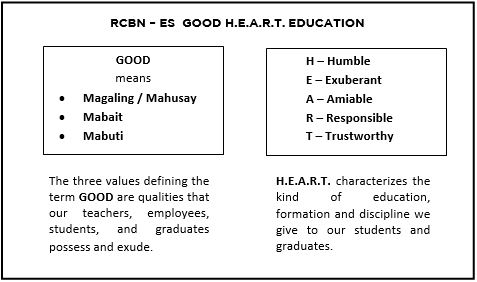
E. LOGO
F. CORE VALUES
- Education
- Service
- Communion
- Evangelization
G. QUALITIES DESIRED FOR OR EXPECTED OF RCBN-ES STUDENTS AND GRADUATES TO POSSESS OR EXUDE
- Prayerful
- ICT Competent
- Committed
- Responsible
- Family-oriented
- Humane (Makatao)
- Globally-competitive
- Academically excellent
- God-loving/God-fearing
- Truthful and trustworthy
- Fine-mannered and disciplined
- Capable of leading & modelling
- Good (mabuti, mabait, magaling)
- Psycho-Emotionally stable / Mature
- Proficient and Confident in Public Speaking
- Compassionate especially to the less fortunate
- Caring for the Environment or Environment-friendly
- Financially Literate / Judicious / Entrepreneurially-minded
- Highly adaptable to life-situations and calmly creative even in adversity
H. BOARD OF TRUSTEES
Most Rev. Antonio R. Tobias, D.D.
Rev. Fr. Albert N. Delvo
Atty. Faustino R. Madriaga, Jr.
Dr. Judith Aldaba
Dr. Belen de Jesus
I. ORGANOGRAM
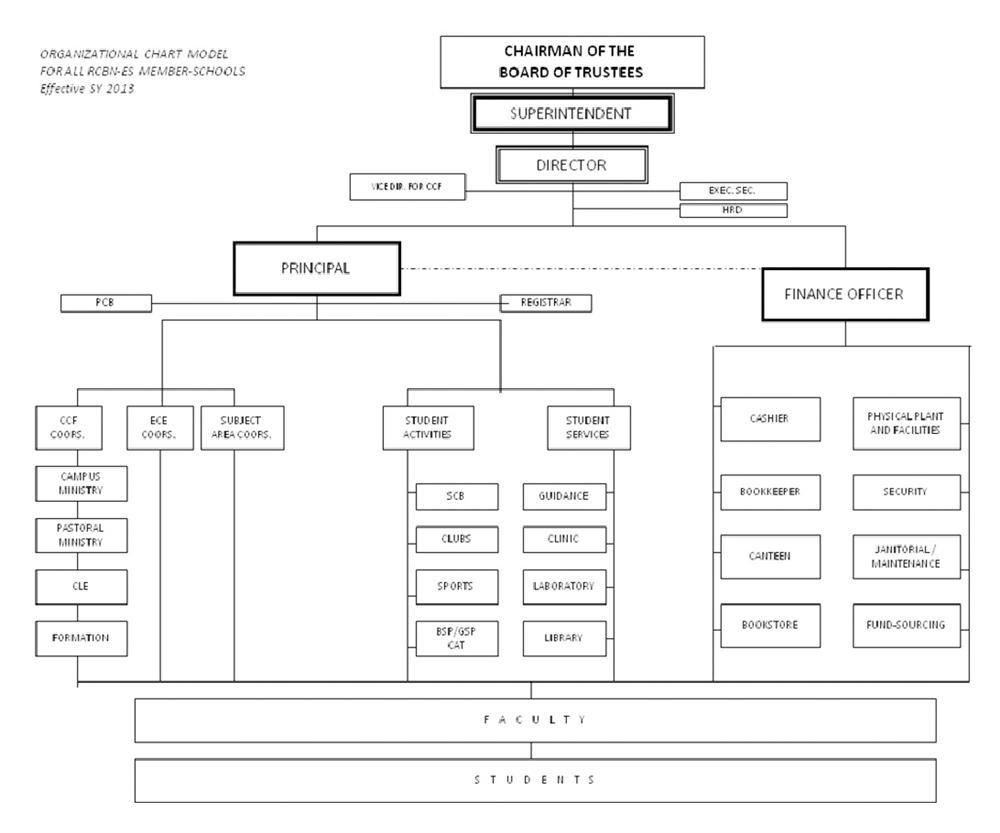
J. BRIEF DESCRIPTION OF KEY POSITIONS
SUPERINTENDENT - Superintendency is the extension of the office of the Bishop in matters of Catholic Education in his diocese. The superintendent provides the venue whereby the Bishop’s directives cascade to the team in charge of the nitty-gritty in the operations of the school. Governance in a Catholic School in the Diocese is the concern of the Superintendent. This covers diocese-wide planning for schools, initiating the formulation of policies and procedures, seeing that these merit the expressed approval of his Bishop. He ensures the proper formulation, adoption, implementation, and revision of the organizational structure which best fits and serves each school in particular and the organization as a whole. He also recommends to the Bishop the suitable individuals to fill up the leadership positions in the school.
DIRECTOR - He is the chief executive of the entire educational institution and is delegated by the bishop with the final authority, mission, and the attainment of the specific objectives of the school.
EXECUTIVE SECRETARY – Effectively and diligently works for the Office of the Superintendent with exemplary commitment and serves as “chief of staff” in the RCBN-ES office. At times, she is tasked to disseminate communications to and facilitate coordination with the principals, finance officers, and the rest of the school personnel.
PRINCIPAL – He / She assists the school director in the attainment of the vision, mission, goals and objectives. Organizes and supervises the activities of the school; plans and carries out educational/development programs and policies as prescribed by the Department of Education and RCBN-ES and the school’s philosophy of education, vision, and mission. Supervises the curricular programs and coordinates all efforts of the academic department in conducting an effective teaching-learning process towards the achievement of academic excellence. Promotes the program of continuing studies and research in pursuit of Academic Excellence. Models to academic teaching and non-teaching personnel the values of punctuality, hardwork, commitment, and service to the school and the church.
FINANCE OFFICER - The Finance Officer exercises general supervision over the financial activities of the school. He/She is responsible for the preparation & implementation of the financial business policies of the school system. He/She is in-charge of the effective and efficient administration of the school’s physical assets, revenues and expenditures according to the ideals of accountability & trustwortiness in the task of stewardship. He/She supervises the accounting personnel and maintenance-security staff in ensuring their fine grooming-decorum, punctuality, and productivity. He/She, too, ensures that the school (inside and outside) is beautiful, presentable, orderly, and clean.
K. MEMBER-SCHOOLS
| |
SCHOOLS |
PRESENT OFFICIALS SY 2014-2015 |
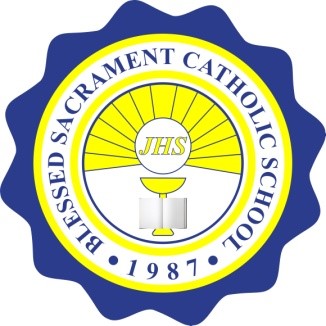 |
Blessed Sacrament Catholic School
J.P. Ramoy St., Talipapa,
Novaliches, Quezon City
453-6223 / 984-6099
|
Ms. Meddy L. Sanchez
Principal
Mrs. Marilou M. Corpuz
Finance Officer
|
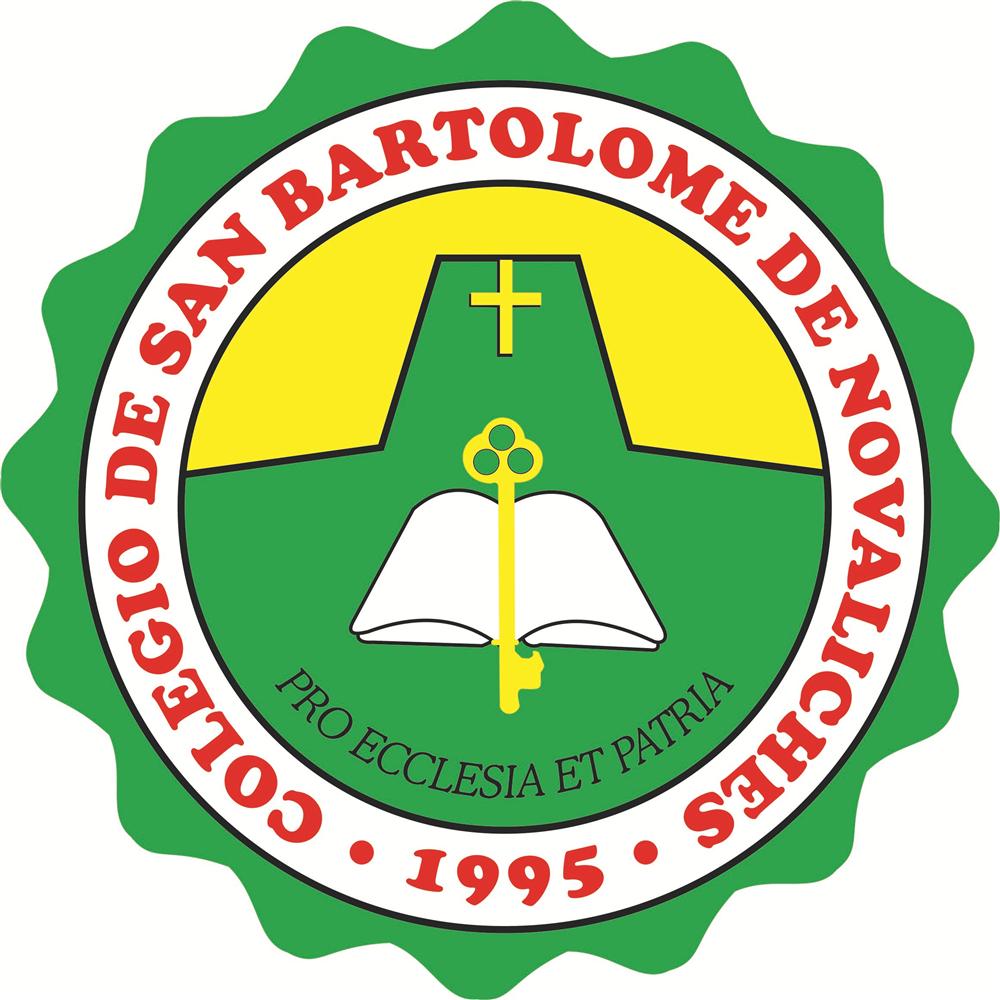 |
Colegio de San Bartolome de Novaliches
Quirino Hi-way cor. dela Cruz St.,
Novaliches, Quezon City
419-8209 / 930-7839
|
Mr. Paul B. Polintan
Principal
Mrs. Imelda B. dela Cruz
Finance Officer
|
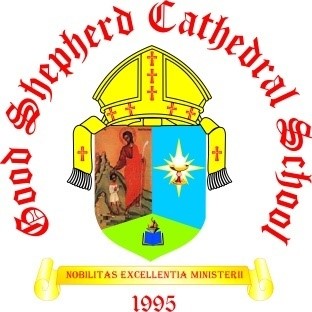 |
Good Shepherd Cathedral School
Omega Ave., cor. Rado St.,
Fairview, Quezon City
430-7822 / 431-0793
|
Dr. Carina G. Dacanay
Principal
Mrs. Linda Macalintal
Finance Officer
|
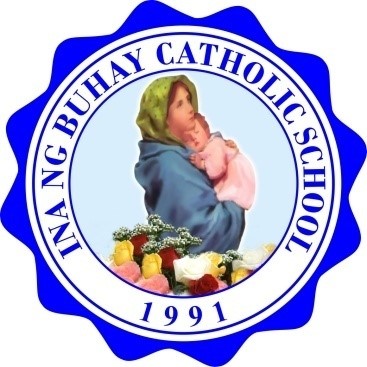 |
Ina ng Buhay Catholic School
Jordan Heights Subd., Damong Maliit,
Novaliches, Quezon City
938-7069 / 938-2059
|
Ms. Osmunda L. Pineda
Curriculum and Instruction Consultant
Ms. Lorelie R. Mabiog
Finance Officer
|
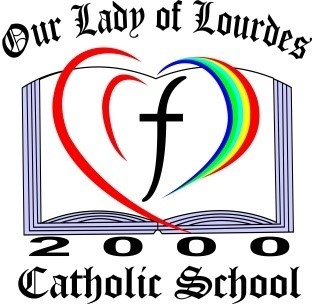 |
Our Lady of Lourdes Catholic School
Pre-school & Primary Campus
Petunia cor. Chrysanthemum Sts.,
Area B, Camarin, Caloocan City
Intermediate & High School Campus
St. Paul St., La Forteza Subd.,
Camarin, Caloocan City
962-7955 / 962-8584
|
Mrs. Marjudy A. Antolin
Principal
Ms. Jacqueline Lazo-Sy
Finance Officer
|
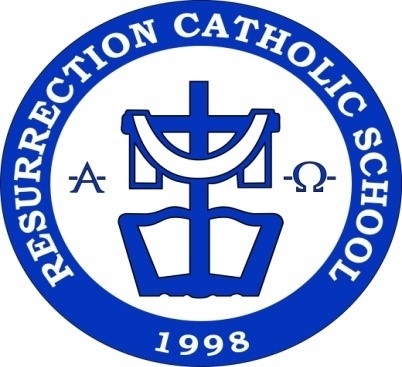 |
Resurrection Catholic School
Parokya Road, Bagbag,
Novaliches, Quezon City
418-3154
|
Ms. Meddy L. Sanchez
Principal
Mrs. Marilou M. Corpuz
Finance Officer
|
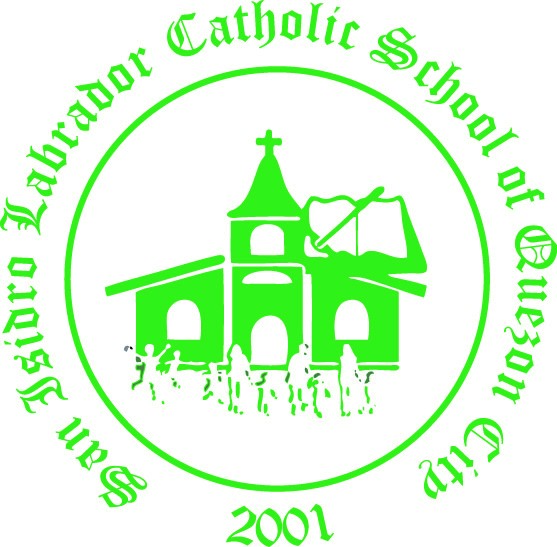 |
San Isidro Labrador Catholic School
Philand Drive, Pasong Tamo,
Quezon City
939-0182
|
Rev. Fr. Albert N. Delvo
Principal
Superintendent-Director
Mrs. Regina Cecilia G. Molina
Finance Officer
|
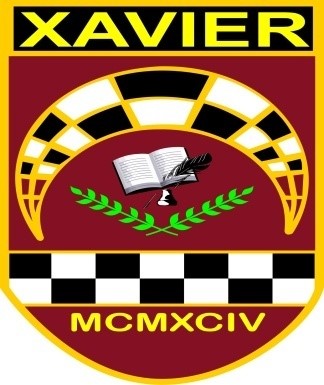 |
St. Francis Xavier Catholic School
Champaca St., Maligaya Subd.,
Novaliches, Quezon City
962-9907
|
Mr. Paul B. Polintan
Principal
Ms. Lorelie R. Mabiog
Finance Officer
|
 |
St. Francis de Sales Academy. Inc.
Bagong Silang, Caloocan City
|
Mrs. Peñafrancia Mejia
Principal
Ms. Jacqueline Lazo-Sy
Finance Officer
|
II. RCBN-ES STANDARD POLICIES & GUIDELINES
- Admission Policies
- Admission is a privilege and not a right, and is discretionary upon the school, which is not charged with the legal responsibility of providing education to those who do not satisfy its admission requirements (Revised Manual of Regulations for Private Schools, Sec.117).
- Private schools have the right to impose other rules and regulations for the admission of students aside from the entrance examination.
- Every school has a right to determine which applicants it shall accept for enrollment. It has a right to judge the fitness of students seeking admission and re-admission. A student’s failure to satisfy the academic standard the school sets shall be a legal ground for its refusal to re-admit him.
NEW STUDENTS
- Must have appropriately passed the previous Academic Year preferably with an average of 82.
- Must have a grade in Conduct of at least 82% or its equivalent.
- Must present the proper document of eligibiity (Report Card) and Good Moral Character from the Principal of the previous school.
- Must present original and photocopy of Birth Certificate, and if and when available, also Baptismal Certificate of the child.
- Must qualify in the entrance examinations.
TRANSFEREES
After the two-week period from the opening of classes, no further enrollment will be allowed, without prejudice however to subsequent transfer by an enrolled student from one school to another during the school year, provided the consent of both schools is obtained. As a general rule, interschool transfer after the enrollment period is discouraged, especially in the cases of student who are expected to graduate from a course of study during the school year at the secondary or tertiary levels of formal education (RMRPS, Sec. 119).
- Must fulfill the requirements stated in nos. 1-4 on new students.
- Must be a regular student, i.e., no back subjects.
OLD STUDENTS
- Must have a grade in Conduct not lower than C+ or its equivalent.
- Students who lacked the necessary units must have taken the failed subjects and passed during summer. Students who fail this requirement shall be refused admission to the next grade level.
PROBATION
Probation is the observation status given to a pupil / student in a certain period of time for improvement. This may be ACADEMIC or CONDUCT in nature.
Academic probation is normally given to pupil / student who did not perform well in their entrance examination, or to pupil / student who had taken summer with a grade below 80%; year-long strict academic probation is given to newly-admitted pupils / students with failure(s) from their previous school of attendance in any grading period except for the final grade.
Conduct probation is primarily behavioral in nature: this may be STRICT PROBATION (normally lasting for the entire school year, with the understanding that if the student receives any suspension, the school will make a recommendation for transfer) or simple PROBATION (given in certain number of quarters).
A pupil / student may be readmitted on PROBATIONARY STATUS on the conditions that said pupil / student:
- shows an average rating of 82% in academics, as well as in Conduct
- must be favorably recommended by the Committee on Academic Performance/Discipline (composed of the Principal, Subject Area Coordinators / Team Leaders, Advisers, Subject Teachers, and Prefect of Students).

GROUNDS FOR NON-READMISSION
- A rating in Conduct lower than C or its equivalent;
References:
- All educational institutions shall teach the rights and duties of citizenship, strengthen ethical and spiritual values, develop moral character and personal discipline” (Philippine Constitution, Art. XIV, sec. 3)
- Behavior and Measures of Discipline
- Disciplinary Measures
- Habitual delay and/or failure in paying school financial obligations;
- Membership and/or involvement in any organization, fraternity/sorority, gangs and other similar dubious organization;
- Habitual and/or deliberate non-attendance in school-calendared activities without the school’s approval;
- Those who took summer classes in another school without permission from the Principal/Registrar;
- Students who received three suspensions; and
- Recommendation by the Academic/Conduct Deliberation Committee due to poor academic and/or behavioral performance.
B. Academic Programs & Policies
- Curriculum in Primary and Secondary Schools at RCBN-ES
Every child in RCBN-ES must undergo at least eleven years of basic education. This comprises 7 years of compulsory primary education (Kinder to Grade 6) and 4 years of secondary education (1st Yr/Grade 7 to 4th Yr/Grade 10).
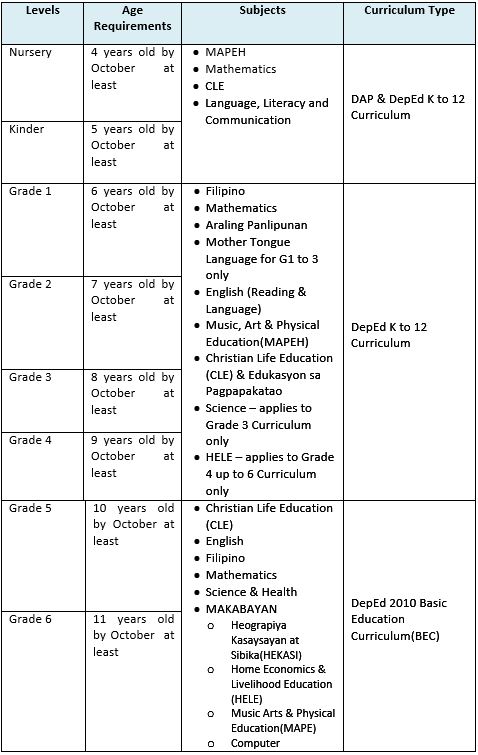
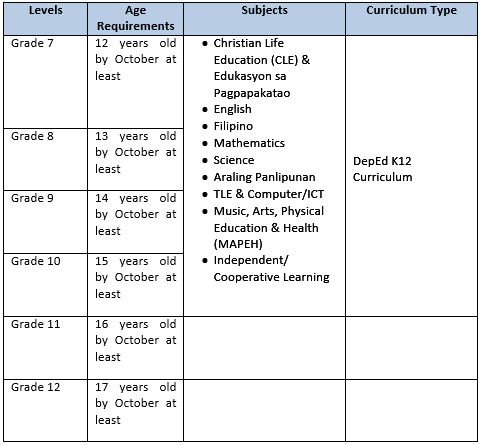
- School Term
The RCBN-ES member schools comply with the mandated requirement of DepEd as regards the number of school days.
- Academic Load
RCBN-ES schools accept regular pupils / students only. All pupils / students shall take all the requirements that are especially apportioned in accordance with the DepEd specification over the seven curriculum years in elementary and four curriculum years in the Junior High School.
- Grading System
Grading system is designed to assess the performance of pupils / students and assist in identifying possible problems. The grade that a pupils / students receives is taken approximately as an index of his/her scholastic achievement during a certain period and solely based on pupil’s/student’s academic or scholastic performance. There are four grading periods across levels.
- Averaging System
The school adopts the Averaging System in reference to the DepEd order No. 8 s. 2015 of rating and reporting pupil’s / student’s performance in the Elementary and Junior High School levels. The passing grade is 75% or its equivalent and the highest grade is 100%.A pupil / student who receives a final rating of less than 75% will be considered failed.
- Early Childhood Education
Early Childhood Education lays the most important foundation for the basic education of the children. For the first level (Pre-Nursery) and the second level (Nursery) of Early Childhood Education, we emphasize values formation and skills development. Skills development includes physical and motor skills development, social development, cognitive and language development. At different stages the child slowly develops according to his own pacing to be able to cope with academic competencies which begins at the third level (KINDER)
The RCBN-ES ECE focuses on preparing the early learner to be able to meet the academic challenges in the Elementary and Secondary Levels of Basic Education. RCBNES follows the integrated approach to the development of the values and other learning competencies using Developmentally Appropriate Practices for the ECE Level. Thus, in the assessment of the Early Learner the same principle is applied. The skills which are embedded in the various learning areas are evaluated based on the progress of the child. The progress is rated on five levels of proficiency which are as follows :

- Grades One to Ten Grading System (DepEd Order # 8, s. 2015)
Weight of the Components for Grades 1 – 10
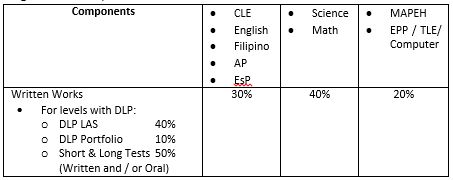
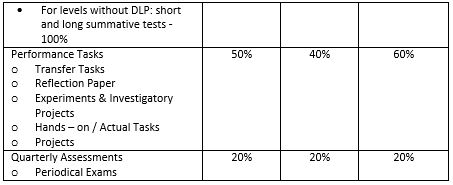

At the end of four quarters, the Final Grade for each learning area shall be reported as the average of the four quarterly ratings, expressed in numeric. The general average shall be the average of the final grades of the different learning areas, also expressed in equivalents. (DepEd Order no. 8 s. 2015)
The school shall comply with the guidelines set by the DepEd regarding awarding of honors, promotion and retention of students in both elementary and Junior High School levels.
- Grades 5 and 6
There shall be a single mark for MAKABAYAN for each grading period. The percentage for MAKABAYAN shall be constituted by the following:
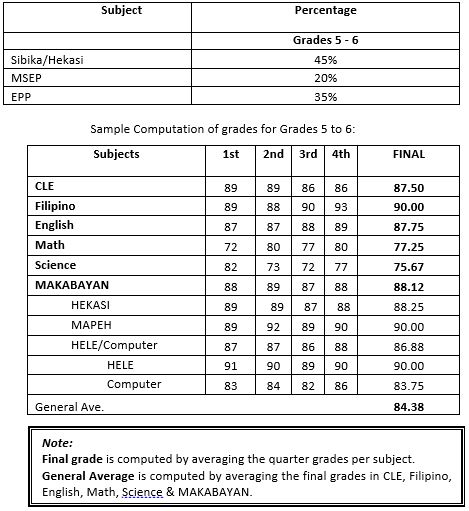
- Conduct Grade
The grades in Conduct/Deportment are conducted by each subject teacher and adviser using the following character and scale.
VALUES:
- Care and Concern
- Charity and Piety
- Courtesy and Cordiality
- Obedience and Responsibility
- Decorum and Demeanor
SCALE:
A + 100 – 96 B- 83 – 81
A 95 – 93 C + 80 – 78
A - 92 – 90 C 77 – 75
B + 89 – 87 C - 74 – 72
B 86 – 84 D 71 below
- Evaluation of Co/Extra-Curricular Activities
In recognition of the leadership skills, services and participation of the pupils/students in different competitions the following points in the area of co-curricular activities performance shall be granted to the graduating students/pupils vying for honors in the elementary and secondary levels.
Guidelines for Ranking
POINTS FOR CO-CURRICULAR ACTIVITIES
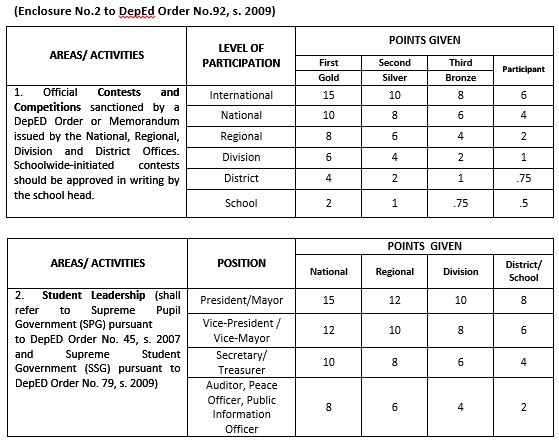
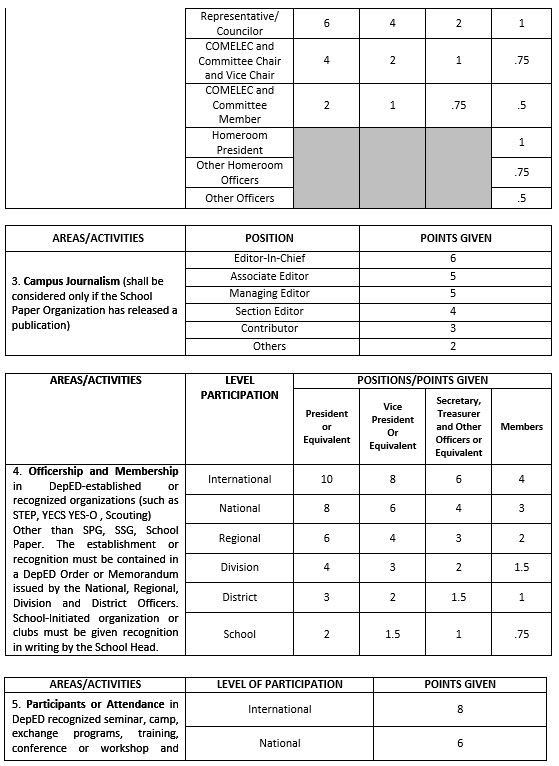

Computations of points shall be cumulative. However, points for concurrent positions held in violation of existing DepEd policies shall not be considered, in which case only the position with the highest point shall be included. (Section 8, Article VII, DepED Order No. 79, s. 2009 on the Revised Constitution and By-laws of the Supreme Student Government in Secondary Schools).
To be considered as points, copies of all documentary and evidentiary requirements (DepED Order, DepED Memorandum, written authorization from School Head, certificates, medals, trophies, plaques and others) shall be presented.
To be considered as points, officers in organizations seeking ranking shall present an accomplishment report verified thru certifications by proper authorities.
- Issuance of Report Cards
- The school observes four (4) grading periods. Report Cards are issued at the end of each grading period. Parents are required to personally claim the card of their son/daughter and to confer with the respective teacher/s about the scholastic/behavioral progress in the school.
- Unclaimed report cards are forwarded to the Registrar’s Office after the scheduled date for card distribution. Parents may secure the unclaimed report cards from the office preferably within the 3 working days after the card distribution; it is advised that parents should request an appointment with the class adviser to inquire about their child’s scholastic and behavioral status before he/she can get the card from the office.
- Catch – up and Bridge Program
- These are programs that the school conducts in order to help the pupils/students creatively address and successfully overcome any handicap or weakness which is identified by the teacher or the school authority. The length of time varies according to the kind of intervention needed by a particular student. There are three (3) kinds of intervention programs the school can make available depending on the need of the child. To wit:
- TUTORIAL PROGRAM
Tutorial Program is conducted for pupils/students who have demonstrated specific weaknesses in their academic performance. This is usually done one-on-one to assist the student in coping with the specific weakness identified by the recommending teacher. The appointment of a tutor is done by the Principal in order to select the best teacher who will be able to address the individual concern of the tutee. It is normally programmed for a period of 3 to 6 months after which the student should be able to do things on his/her own.
- OPPURTUNITY CLASSES
This is usually conducted by the school to address the specific needs of a group of students. The needs are normally identified according to the skills in a particular subject area. Students are put together and a teacher is assigned to handle the specific areas for improvement. This is normally done to enable the students catch up with the rest of the population in a specific class. The normal period for the conduct of this is 2 to 3 months. If and when any particular student is unable to catch up, he/she may be recommended for tutorial program.
- SUMMER ENRICHMENT PROGRAM
This is conducted for students who were not able to meet the academic grade requirements of at least 80% of a particular subject in a particular level. This is conducted after the academic school year is over. The length of time is usually 36 to 40 hours. For pupils / students who failed or with a grade of 74% and below are required to attend summer remedial classes.
- Enlistment in the Academic intervention Program is coursed through the subject teacher and the subject area coordinator / team coordinator.
- Request for tutorial services is arranged through the Principal.
- Honors and Awards
To inspire the students to attain the highest level of achievement, RCBN-ES recognizes students who have shown splendid performance in academics, co-curricular activities, or both and in other special skills.
ACADEMIC AWARD
ECE (Nursery and Kinder)
Given to pupils who have shown outstanding performance in skills development (70%) and values development (30%) in a stretch of four (4) quarters.
The number of top achievers per quarter is based on the consolidated number of enrollees. Top five (5) are declared if the enrollment is below 35 and top 10 are declared if enrollment is 35 and above.
Grades 1 to 10
Every grading period, the pupils / students will be ranked based on their academic performance. Top Ten pupils / students for every quarter will be given a Certificate of Merit at the end of the 1st to 4th quarters per level based on the general weighted average and their conduct rating.
At the end of the school year, the following awards are given to deserving students:
- Values Awards- are given to the students for exemplary behavior in dealing with teachers, classmates, school staff and others. Awardees should exemplify good values and right conduct of every growing Catholic student. Being a Catholic school, the following values are given primary importance:
Most Caring
Most Charitable
Most Obedient
Most Courteous
Best in Decorum and Demeanor
- Academic Awards –are given to the top three pupils / students with the highest general average for the whole school year.
LEVEL ACADEMIC AWARDS
1st Honors
2nd Honors
3rd Honors
- Best in Subject Award – is given to pupils / students in every level who have gotten a grade not lower than 85% in conduct in every grading period and have excelled over and above his/her peers in specific fields, namely:
- AWARDS FOR NURSERY
Best in Oral Communication Skills (applies to both English and Filipino)
Best in Socio – emotional Skills
Best in Mathematical Skills
Best in Motor Skills
- AWARDS FOR GRADES ONE TO FIVE AND GRADES SEVEN TO NINE

AWARDS FOR GRADUATING PUPILS / STUDENTS
- Awards for Moving – Up
- Values Awards
Most Caring
Most Charitable
Most Obedient
Most Courteous
Best in Decorum and Demeanor
- Year-End Top Achievers
First Honors
Second Honors
Third Honors
Given to pupils who have shown outstanding performance in skills development (70%) and values development (30%) in a stretch of four (4) quarters. The number of top achievers is based on the consolidated number of enrollees. Top 3 are declared if the enrollment is below 35 and Top 5 are declared if enrollment is 35 and above.
- Best in Subject Awards
Best in Christian Life Education
Best in English
Best in Filipino
Best in Mathematics
Best in MAPEH
- GRADE 6 AND 10
- Values Awards
Most Caring
Most Charitable
Most Obedient
Most Courteous
Best in Decorum and Demeanor
- Academic Awards
Valedictorian
Salutatorian
1st Honorable Mention
2nd Honorable Mention
3rd Honorable Mention
- Best in Subject Awards
CLE Math Filipino
English Science Computer
HELE/TLE Araling Panlipunan MAPEH
- Special Awards for Grade 10
- Loyalty Award - is given to a graduating Junior High School student who has continuously studied in our school from kinder to Grade 10. The same award is also given to graduating elementary students of RCS SILCS, & SFDSA who have stayed in the school from Kinder to Grade 6.
- Leadership Award – is given to a graduating high school student who has shown outstanding leadership skills/qualities and meets the following requirements:
- An active officer of any club/organization;
- Has an exemplary sense of responsibility;
- Consistent in manifesting leadership traits for at least one year preceding graduation; \Has not been involved in any offense that is punishable by suspension; and
- Has not received a failing mark in any subjects.
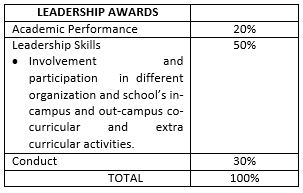
- Bishop’s Award – is given to a graduating high school student who has unselfishly shared his/her time, talent and efforts in school activities through enduring service or exemplary involvement during the school year. He/She should not have received a failing mark in any subjects, and should not have been involved in any offense that is punishable by suspension. The selection will be guided by the following criteria:

- Selection of Honorees and Awardees
The selection of honor students in any level of instruction is done on the basis of merit, trustworthiness, and justice. It shall be based upon the set of criteria approved by the institution and the Department of Education.
- Candidates for honors, at any grade level, are chosen from the top ten (10) pupils/students of the school. They must not have a final grade lower than 85% in any subject from first to fourth grading periods.
- The top 10 pupils/students for grade 6 and grade 10 shall be ranked using the 7-2-1 point scheme (7 points for academic performance, 2 points for exemplary involvement in co-curricular activities, and 1 point for conduct). The following criteria and the corresponding relative weights shall be used in determining the honors:
- Academic Excellence (7 points)
Academic excellence shall be based on general average of the six learning areas in curriculum year. The procedure for ranking based on academic excellence is as follows:
- Compute the average of each learning area up to two decimal places
- Get the average of the grades of the six learning areas for Grades 6 and eight learning areas for Grade 10;
- Rank the candidates according to this average (highest average gets the highest rank and so on); and
- Multiply the rank by 7 points. The product will be the weighted rank.
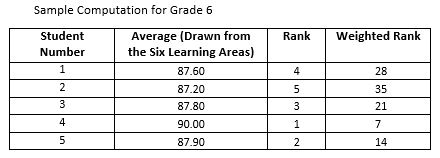
- Co- Curricular Activities (2 points)
Ranking of candidates shall follow this procedure:
- Get the composite rank (sum of all co-curricular points computed by the class and club advisers, subject teachers, etc.) of each candidate;
- Rank the candidates from the lowest to the highest sum; and
- Multiply the final rank by 2 points.

- Conduct (1 point)

- For Final Ranks
- Add the weighted ranks of the students; and
- Rank the sums from the lowest to the highest.
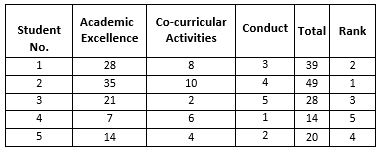
Thus, in this case, Student No. 4 shall be the valedictorian and student No. 1, the salutatorian
- For academic awards, there shall only be one recipient for each category. The student’s grades in the current school year shall determine the ranking of honors for graduating pupils/students. In case of a tie, the academic general average will be the determining factor.
- Candidates for honors at any level must have done the entire work of the grade level in the school where they are candidates for honors. Thus, transfer students who enrolled after the second week of formal classes of the current school year shall not be eligible for honors.
- A pupil/student who has been suspended for serious disciplinary infractions (e.g. Cheating, stealing, smoking inside the school premises, gambling of any sort, fighting, causing injury to others, etc.) as identified in our handbook, and defined in Section 1.1.2 of the 2000 DECS Service Manual shall be disqualified for honors for the curriculum grade during which the suspension is imposed.
- Promotion and Retention
Promotion as a general rule states that no pupil / student shall be promoted/graduated unless he/she has residence of at least one curriculum year and has adequately complied with all academic requirements.
- Probation
Academic Probation is the formal academic status of a pupil/student with a condition that satisfactory improvement in academic performance be made in all subjects prior to readmission in the next school year.
- Grade School
A grade school pupil is placed on Academic Probation when he/she:
- Failed in one (1) subject
- Received final grades of 75% in three or more subjects
- Failed to attend the required intervention classes.
Academic Probation is lifted for the following school year if the student obtains a minimum final grade of 80% in the subject(s) he/she has difficulty with.
If however, she fails to make a minimum final grade of 80% in the subject(s) he/she has difficulty with, then he/she may not be readmitted in the next school year.
- Junior High School:
- An incoming Grade 7 student who has not fully satisfied the requirements for admission or who has not fully complied with the required Intervention program is placed on Academic Probation.
- Academic Probation status may be lifted if the student has obtained a minimum grade of 80% in all subjects for two (2) consecutive grading periods.
- If, however, at the end of the school year, he/she fails to make a minimum final grade of 80% in these subject(s) he/she may not be readmitted in the next school year.
- Recognition and Graduation
Graduation. The graduation ceremony is the formal and official recognition by the school that the student has properly fulfilled the requirements of the institution and the Department of Education.
It is also the special occasion for the school to recognize the academic and non-academic achievements of the graduating students during the period of their studies in the school. Thus, parents are required to attend and wear decent and dignified attire befitting the special event. In relation to graduation, the students may be categorized as follows:
- Graduating Students
This refers to the students who at the end of the regular school year have satisfactorily fulfilled the minimum requirements prescribed by the institution and the Department of Education.
- Summer Graduates
This refers to students who have completed all the requirements in summer.
- Failed Students
This refers to students with failing grades in three subjects or more.
Every graduating student is required to complete his attendance until graduation day, attends all practices/rehearsals (including the baccalaureate and graduation exercises scheduled by the school as an integral part of the academic prerequisites required by the Department of Education) unless excused by the Principal for valid reasons.
- Student Records and Documents
The school record of any transferring pupil or student is sent through a school to school basis. Upon submission and acceptance of the transfer credential, the school to which the pupil or student has transferred shall request in writing for the complete school records (form 137) or transcript of records of the pupil or student from the school last attended.
The latter school shall forward such records directly to the school within 30 days from receipt of the request.
Once the Form 137 or transcript of records has been released to the school, no other copy should be released to another school for transfer purposes.
The Form 137 should not be given to the pupil or student unless authorized in writing by the school requesting the said records.
Release of school records of a pupil or student. The school records of a pupil or a student shall not be released if he/she is: (Revised MRPS, Title IV, Section 140) under terms of suspension or expulsion. A student may not be issued his certificate of eligibility to transfer at the end of the school year when he is undergoing a penalty of suspension, or expulsion, or for failure to settle satisfactorily his financial or property obligations to the school. The certificate of eligibility to transfer, however, shall be released to the student as soon as he will finish serving the suspension or his expulsion shall have been lifted.
- Discipline Policies
- Policy Statement on Discipline
A strong foundation of an effective, efficient, quality academic institution is a fair and firm discipline system that is governed by reasonable policies and rules. All learners have the duty to uphold the basic principles, ideals and values that the school stands for and adheres to. Following the policies, guidelines, reasonable norms, rules and regulations that are strictly implemented by the administrative officials of the school aids in the maintenance of peace and order and is crucial to the attainment of a harmonious and productive relationships with fellow students, faculty members, staff, administrative officials, parents/guardians and the rest of the members of the academic community.
The maintenance of good discipline among all learners both inside the school campus and outside the school premises during authorized school activities is the responsibility of the school administration and teachers. The application of physical harmful punishment is not permitted and no disciplinary sanction shall be imposed upon any pupil or student except for VALID CAUSES and in accordance with DUE PROCESS (cf. Title III Section 131 Revised Manual of Regulations for Private Schools in Basic Education 2010 <RMRPSBE>).
- Rationale
- The Catholic Philosophy of Education gives importance to DISCIPLINE especially self-discipline, not only amongst learners but all those who form part of the educational institution. The Catholic philosophy sees discipline as a means to have right order. This is ultimately based on the belief in a God who is a God of order and not of chaos and confusion. Catholics believe that God has placed order in the universe and in the whole arena of the natural world.
- In the Catholic Philosophy of Education, the school assumes the role of educating the learners to realize that they have duties, a) to themselves, b) to others, and c) ultimately to God who is the source and origin of life. The Catholic Church establishes schools on all levels to…
“Lead Christians to a closer union with Christ our Lord, a union that is more possible when man understands the reality around him, and understands it in its entirety.For all reality is related to God, and the Catholic school tries to keep this universal relationship ever in view.”
McGucken, S.J. William J. and Michael P. Sheridan, S.J., A Catholic Philosophy of Education.The America Press, 1966, p. 18.
- The Catholic Philosophy of Education instills in the learners and in all the members of the academic community respect for authority, and the values of patriotism, loyalty and freedom.
- The Catholic Philosophy of Education is centered on Jesus Christ and grounded in the way of Discipleship. All learners are ultimately led to live as disciples of Jesus who is the obedient Son of God, the loving Father. In the Catholic worldview, “Education consists essentially in preparing man for what he must do here below in order to attain the sublime end for which he was created…”
Pope Pius XI Encyclical on Christian Education
- A Catholic educational institution is committed to the pursuit of truth & excellence to give glory to God. This is made possible through the proper formation of Christian values and attitudes in an organized environment that is conducive for quality learning, personal growth and professional development.
- General Approach to the Discipline of Children
Following the Policies and Guidelines on Protecting Children in School from Abuse, Violence, Exploitation, Discrimination, Bullying and Other Forms of Abuse (Department of Education Order no. 40 s. 2012), the general approach with regard to the discipline of children is PROACTIVE, POSITIVE and NON-VIOLENT.All RCBN-ES school officials, academic and non-academic personnel are enjoined to have a holistic, constructive, formative (not PUNITIVE in nature) and pro-active approach as regards teaching and developing the proper attitudes and appropriate behavior of the learners as regards discipline.If the learners commit mistakes, life-long learning from the mistake or offense committed should be emphasized so that the acquisition of thedesired values are the goals of the intervention(s) provided(cf. Section 3, Article P of I – General Provisions of DepEd Order No. 40) .
The following are the acts that are prohibited and shall be penalized in the administrative proceedings of the schools under the RCBN-ES (cf. Section 15, Part V of DepEd Order No. 40 s. 2012):
- Child abuse (this includes close and distant bullying, cyber-bullying, threats in whatever form, and unreasonable disregard for the rights of children)
- Discrimination against children
- Child Exploitation
- Violence Against Children in School
- Corporal Punishment
This refers to a kind of penalty imposed for an alleged or actual offense carried out or inflicted, for the purpose of discipline, training or control, by a teacher, school administrator, an adult, or any other child who has been given or has assumed authority or responsibility for punishment or discipline.It includes physical, humiliating or degrading punishment (cf. Article O, Section 3, Part I of DepEd Order No. 40).
The child’s face and head have been declared as a “no contact zone.”
- Any analogous or similar acts.
These are offenses that may be committed by the students against their classmates, parents against their own children and adults against minors.
- Classification of Offenses & the Procedures in the Giving of Sanctions
- Minor Offenses
a.1. Disruptive
- Unnecessary talking/noise in the classroom/library
- Playing inside the classroom during class hours
- Creating disturbance such as dragging of feet, howling, shouting and boisterous laughter
- Changing of seats during class hours
- Running inside the classroom or in corridor
a.2. Inattentive
- Not listening/paying attention to teachers
- Sleeping during classes
a.3. Littering
- Leaving trash on the floor or in any place in school
- Throwing trash in any place in school (grounds, corridor, canteen)
a.4. Loitering
- Staying at the corridor during class hours
- Running or shouting along corridors or stairways while other classes are ongoing
- Going to the office, canteen and clinic during class hours without teacher’s permission and prescribed hall pass
- Faking sickness, illness, or physical discomfort just to while time away in the clinic
- Unauthorized overstaying inside the school campus
a.5. Untidy
- Improper wearing of the daily prescribed uniform
- Unauthorized haircut not in line with the prescribed grooming of an RCBN-ES student such as hair longer than 2”x3”, sporting hairstyles like spike hair with gel, colored hair, skin head, under cut, long sideburns
- Wearing of nail colors, nail arts, make-up
- Unshaven beards and mustaches
- Tattooing (temporary or permanent)
a.6. Improper Uniform
- Not wearing school I.D.
- Improper wearing of and/or tampering with school I.D. (inserting or sticking of unauthorized items in the school I.D. such as stickers, photos, money, tickets)
- Improper use of the prescribed school uniform (unbuttoned polo shirts, folded sleeves)
- Wearing school uniform without name patch and school logo
- Not wearing the school uniform prescribed for the day (wearing a regular uniform on a P.E. uniform prescribed day, wearing of P.E. uniform during examination day – unless required by the P.E. teacher)
- Not wearing the prescribed P.E. uniform
- Not wearing white undershirt
- Revealing attires like plunging necklines, colored and printed underwear that are transparent in light colored school uniform.
a.7. Disobedience
- Tardiness (flag ceremonies, programs, classes, Holy Mass, any and all activities in school)
- Absenteeism
- Not doing assigned school works
- Not bringing the previously assigned material(s) for the subject
- Non-return of reply slips, PTC forms and other official correspondence on or before deadline.
- No excuse slip after being absent from classes due to “sickness” or important family trips
- Bringing unauthorized toys and gadgets and wearing of expensive jewelry
- Chewing of gum inside the school and sticking it inappropriately to school facilities
- Unauthorized handling and usage of school properties
After due process, the following penalties shall be imposed upon offenders by the proper school officials for repeated violations of the same offense:
The child’s attention is called by way of verbal correction and/or anecdotal recording by the subject teacher or adviser.
The erring pupil or student is called by the adviser for a conference with an anecdotal recording.
The child and his/her parent(s) are invited by the Prefect of Students for a conference. This dialogue is meant to update the parent(s) of the repeated offenses, propose to them a suitable mechanism to reform the child, and inform them of possible consequences should they be repeated.
The appropriate corrective-formative intervention like community service is explained to the child for execution and the parent(s) is promptly notified. The said community service may be in the form of cleaning a school area or rendering a service at an office for three (3) hours after his/her classes. After complying with corrective-formative intervention (CFI), the child undergoes guidance and counseling session.
Sanctions covering grave offense shall apply.
- Grave Offenses
The following are Grave or Major Offenses:
- Writing on armchairs, wall, comfort rooms;
- Soliciting money from classmates or schoolmates;
- Saying bad words and making bad signs;
- Pushing schoolmates or classmates;
- Tearing the books, notebooks, papers of classmates, school mates, etc.;
- Cutting classes or unauthorized absence during official school time and/or leaving the school campus during official school periods or classes. Truancy is considered grave because unforeseen mishap, accident, disastrous events may occur with the parents/guardians and school uninformed about the whereabouts of the erring pupil or student. The Department of Education has already directed all concerned under DepEd Order No. 86, s. 2010 dated June 18, 2010 ‘Prohibiting Students in Public and Private Elementary and Secondary Schools from going to Computer Shops, Malls, Theaters, and the likes during their Class Hours’;
- Stealing money or other valuable items from classmates, schoolmates, school employees, or from the school regardless of the value runs counter to the Gospel values of honesty and respect. This includes stealing examination papers, malversion of funds intended for school use, keeping or not returning lost and found items;
- Disrespectful, disobedient, malicious actuations (verbal, written or through the social networking sites e.g. facebook, twitter, and the like) to any member of the faculty or employees of the school, parents/guardians or guests of the school.
- Maliciously damaging school properties or belongings of school such as vandalism, throwing stones, pebbles, paper, wrappers, chalk, obstructing or destroying water system, etc.;
- Indecent/immodest sexual behavior and conduct which includes but is not limited to:
- 1.
|
Viewing, uploading, downloading, sharing or distributing inside and outside the school campus malicious and scandalous pornographic materials in magazines, books, tabloids, tablets, mobile phones. Laptops, computers, and other electronic gadgets.
|
- 2.
|
Voyeurism or willfully peeping at the private parts of the members of the school community either in the comfort rooms, classrooms, or other areas within the school campus.
|
- 3.
|
Exhibitionism or the indiscreet display of sexual parts for fun or for provocation.
|
- 4.
|
Morally inappropriate and scandalous demonstration of affection e.g. necking and petting, etc.
|
- 5.
|
Unsolicited and unwarranted touching of private parts of any member of the school community.
|
- 6.
|
Wearing provocative clothes/dresses.
|
- Possesion of cigarettes or smoking inside the campus and also outside when in uniform;
- Committing any action which will destroy the good name of the school or the school personnel whether it is done inside or outside the school campus;
- Gambling inside the school campus like betting in jueteng or other number games, including e-gambling inside the school campus, betting on the outcome of games during school-organized intramurals or games under the annual RCBN-ES Sports Festival; and
- Cheating shall constitute, but not limited to the following acts:
- 1. Cheating in examinations, competitions and activities;
- 2. Changing test questionaires and answers;
- 3. Communicating answers during a test through signs and notes, electronically or otherwise;
- 4. Exchanging answer sheets while taking a test;
- 5. Copying the answers from another student’s test papers;
- 6. Allowing another student to copy from one’s test papers;
- 7. Possession of notes (kodigo) or crib books or materials expressly prohibited during examination or test;
- 8. Talking, standing or transferring seats while inside the testing room without the consent of the examination proctor; and
- 9. Plagiarism in projects, reports or term/reflection paper
- The ESC grant is deemed terminated if an ESC grantee is suspended for more than two (2) weeks or dismissed or expelled by the school for disciplinary violations (cf. Section IV.A.3.d. DepEd Order No. 8, s. 2011 Policies and Guidelines on the Government Assistance to Students and Teachers in Private Education (GASTPE) of the Basic Education Level.
- Improper / inappropriate behavior during masses, assemblies and other student activities
- Acting as an accomplice in an offense
- Giving unsolicited comments or any form of distraction when somebody is reciting, when teacher is talking or when the class is praying
- Shaving of eyebrows, ear/nose piercing
- Lending or borrowing ID/school uniform
- Bullying in any form
- Name calling/teasing or giving embarrassing names to schoolmates and school personnel
- Possession and/or selling pornographic materials and making pornographic sketches or writings
- Possession and/or use of firecrackers and pyrotechnics
- Non-delivery of important communication to parents (circular letters, disciplinary slips, reply slips, parent-teacher conference)
- Lying during fact-finding investigation or interrogation forum
- Entering and staying in the comfort room of the opposite sex
- Improper public display of affection (PDA) (intimate gestures and other verified reports of having existing private relationship: holding hands, hugging, kissing, and dating/not attending the class despite presence in the school, inseparable company in any place in the school)
Due process requires that the interview or investigation is conducted with the child accompanied by his/her parent(s) or legal guardian(s).
Three (3) days suspension with a grade in Conduct of 70% or its equivalent.This may be substituted with a penalty of ten (10) days of community service of one (1) hour daily during school days after the last class period.The erring pupil or student may be requested to do cleaning, gardening, and other worthwhile things that may be done for the maintenance, upkeep and beautification of the school.The Prefect of Students will closely monitor not only the penalty but also the actual rendering of community service by the violator. Counseling sessions will be conducted after the completion of community service.
Five (5) to ten (10) days of suspension with a grade in Conduct of 70% or its equivalent.
The erring student will be placed under probation in the coming school year.
- Very Grave Offenses
These offenses merit the penalties of either EXCLUSION/DISMISSAL or EXPULSION.The RCBN-ES Superintendent and the Director appoints competent individuals to compose the committee that will conduct the formal inquiry or investigation. He would then be informed of the progress, outcome and recommended decision to ensure that JUST CAUSE and DUE PROCESS have been accorded all concerned individuals, both the student-violator(s) and the victim(s), the complainant(s) and the respondent(s).
- Gross misconduct
- Very serious dishonesty
- Hazing
- Carrying deadly weapons
- Immorality
- Selling, possession or use of prohibited drugs including marijuana
- Drug dependency
- Drunkenness
- Hooliganism
- Vandalism
- Assaulting a pupil/student or school personnel
- Preventing or threatening any pupil, student, or school personnel from entering the school premises or attending classes or discharging their duties.
- Instigating illegal strikes or activities resulting in the stoppage of classes
- Forging or tampering with school records or school forms
- Using forged school records, forms and documents
- Bringing of bladed items, sharp and pointed articles and injurious instruments related to violence;
- Involvement in the sale, distribution, or use of illegal drugs whether within or outside the walls of the school for as long as the pupil or student is considered officially enrolled in the list of pupils and students;
- Drinking of alcoholic beverages during school related activities both inside the campus and outside school premises e.g. during recollections, retreats, field trips, JS prom;
- Positive involvement in a major of heinous crime that is contrary to upright behavior and sense of moral decency like rape, gang rape, sexual molestation/assault, incest, torture, hazing, robbery, extortion, arson, and other organized crime(s);
- Posting imprudent and malicious remarks/messages in social networking sites such as but not limited to Facebook, Friendster, Twitter;
- Involvement in fraternity or sorority in any aspects of its recruitment, hazing, membership and leadership; and
- Being notoriously undesirable by involving in fights, rumbles, physical assaults, and other violent abuses.
- Forming “gangs” in school campus
- Engaging in lewd, indecent, obscene, disgraceful, and immoral conduct in the campus or any recognized off-campus student activity
- Assault or serious threat against school personnel or fellow student.
- Falsification of school documents such as report cards and transfer credentials
- Forgery of the signature of a person in authority or of parents in official communications
- Corresponding Disciplinary Interventions, observance, and levels of processing/handling)
The following are the categories of disciplinary administrative sanctions both for Grave and Very Serious offenses or violations made by erring pupil(s) and student(s) (CF. Categories of Administrative Penalties Section 136 of RMRPSBE).
- SUSPENSION
The school is allowed to deny or deprive an enrolled student/pupil of attendance in classes for just causes such as but not limited to repeated minor violations or offenses.The penalty of suspension shall not exceed twenty (20%) percent of the prescribed class days in a particular school year.
- PREVENTIVE SUSPENSION
The proper school authority may preventively suspend a pupil or student under investigation of a case involving the penalty of expulsion.The school may disallow the erring pupil/student to enter the school premises if the evidence of guilt is strong and the proper school official is morally convinced that the presence of the pupil/student constitutes a disruption to the normal operations of the school or poses a real risk or danger to either the life of persons or the destruction of properties/facilities in the school.
- EXCLUSION
The school has the right to exercise its power to exclude or drop an undesirable pupil/student from the school’s official list of enrollees. This may be given as a sanction after a summary investigation shall have been conducted. The school is not required to seek the approval of the Department of Education to impose the penalty, nevertheless DepEd encourages the school to file for a period of one year all the pertinent papers, reports, summary proceeding involving the penalty of exclusion in the event an appeal is taken to the Department by the party concerned and the DepEd needs to review the case.
- EXPULSION
This is an extreme penalty that may be given to a pupil or student.The penalty consists of exclusion from admission to any public or private school in the Philippines.The penalty may be given only upon approval of the Secretary of the Department of Education.All the supporting papers including investigation reports and written interviews shall be forwarded to the Regional Office concerned within ten (10) days from the termination of the investigation of the case.
- The Discipline Committee : Composition & Tasks
For minor offenses, all teaching personnel and other school officials have the authority to impose appropriate and reasonable disciplinary measures in the interest of good order and discipline for offences committed in his/her presence (RMRPS, Sec. 134).This authority springs from the school personnel right as substitute parent in relation to enrolled students and pupils.The right to exercise authority as substitute parent within the school premises and during school organized programs and activities should be used only to protect and promote the physical, mental, and moral well-being of the pupils and students.
For grave/serious offenses, the school employee who witnessed the offence or violation shall submit a report to the proper school official who may cause the school to render appropriate disciplinary administrative action against the erring pupil or student.(cf. Section 143 of RMRPSBE)
For offenses that are very grave/very serious, the School Director may form a Discipline Committee composed of three (3) school officials to investigate adequately and deliberate the corresponding disciplinary action against erring pupil(s) and student(s).The appropriate disciplinary action shall be given only for JUST CAUSES and after DUE PROCESS. The erring pupil or student has the right to be heard.The punishment/sanction shall be commensurate with the nature and gravity of the offence (cf. Section 135 of RMRPSBE).
Upon the discretion of the School Director and if the circumstances so warrant, the formation and members of the Discipline & Investigation Committee may be delegated to the School Principal which the latter may or may not head. As recommended by DepEd Order No. 40 Part V, Section 16, the conduct of investigation and reporting of cases of child abuse, exploitation, violence or discrimination, shall be done expeditiously as possible. All private schools are expected to submit the Report of cases of abuse, violence, exploitation, discrimination, bullying or peer abuse and other related offences to the Division Office after each school year.
- The Child Protection Committee (CPC).
As prescribed by law (DepEd Order No. 40 Part II, Section 10), all member schools under the umbrella of the RCBN-ES shall establish a Child Protection Committee.The CPC shall be composed of the following:
- School Head/Administrator as Chairperson;
- Guidance Counselor/Teacher as Vice Chairperson;
- Teacher Representative Designated by the Faculty Club;
- Parent Representative Designated by the Parent Coordinating Board;
- Learner Representative Designated by the Student Coordinating Board; and
- Community Representative Designated by the Punong Barangay and he/she is preferably a member of the Barangay Council for the Protection of Children (BCPC).
The functions of the CPC are stipulated in Article B, Section 10, Part II of the aforementioned Order.
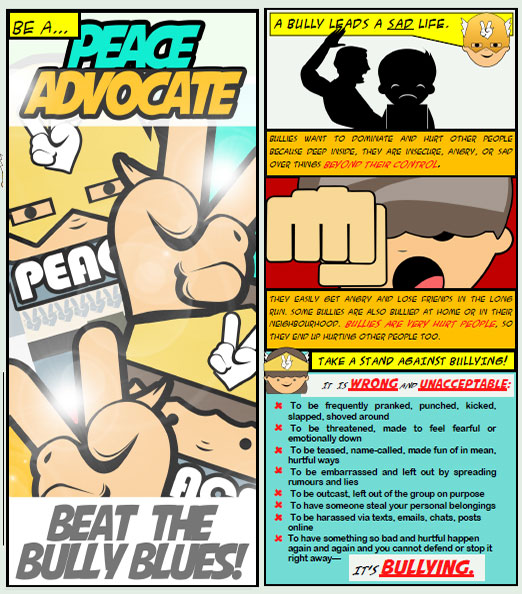
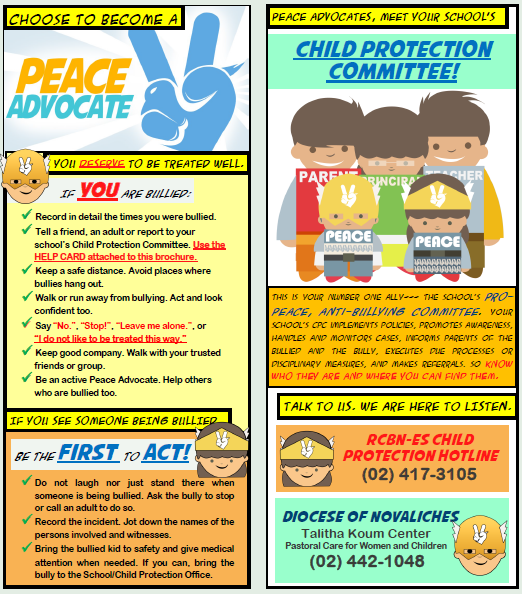
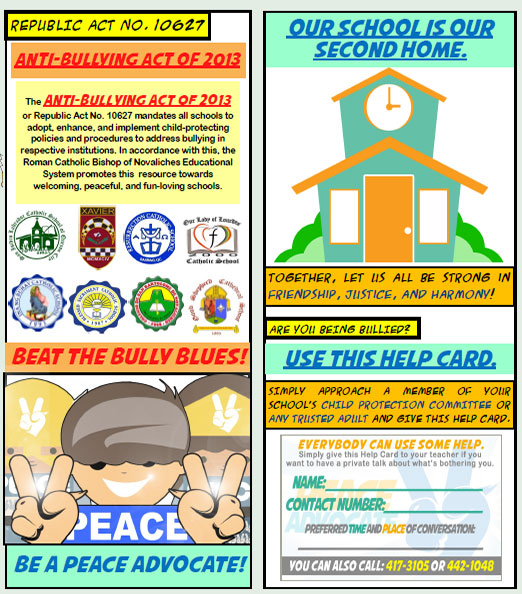
- Duties & Responsibilities of Pupils/Students/Learners:
The Enclosure to DepEd Order No. 40 s. 2012 has provided a list of duties and responsibilities of all learners enrolled in the Basic Education levels (cf. Part II Section 9).They are provided herein for the information and guidance of the entire school community.
- Pupils and students should comply with the school’s regulation, as long as they are in harmony with their best interests, and they shall refrain from:
- Engaging in discrimination, or leading a group of pupils or students to discriminate another, with reference to one’s physical appearance, weaknesses and status of any sort;Doing any act that is inappropriate or sexually provocative;
- Participating in behavior of other students that is illegal, unsafe or abusive;
- Marking or damaging school property, including books, in any way;
- Engaging in fights or any aggressive behavior;
- Introducing into the school premises or otherwise possessing prohibited articles, such as deadly weapons, drugs, alcohol, toxic and noxious substances, cigarettes and pornographic material; and
- Performing other similar acts that cause damage or injury to another.
- All the enrolled learners must conduct themselves in accordance with their levels of development, maturity, and demonstrated capabilities, with a proper regard for the rights and welfare of other persons;
- The learners must respect another person’s rights regardless of opinion, status, gender, ethnicity, religion, as well as everyone’s moral and physical integrity;
- Pupils and students must observe the Code of Conduct for all enrolled learners.
- The Rights of Children
The RCBN-ES Student Handbook or Manual is not only intended to be a reference for the proper handling of cases involving discipline and other school related concerns, it is also meant to constructively educate the members of the entire school community with regard to the many facets of school life-realities, activities,programs, systems, policies and procedures, etc.The following information has been taken from the United Nations Convention on the Rights of the Child and is meant as a guide that may be used for learning, discussion, or the settling of disputes during homeroom periods, faculty meetings and in-service training, forum for parents and guardians, and etc.
- Definition of the Child
Any person who is below the age of eighteen (18) is defined by the Convention as a child.
- Best Interests of the Child as the Norm
The best interests of the child should be the primary concern in making any decision that may affect a child.All adults including those in the school community should think how their policies, budgets, decisions, and procedures will affect children.
- Respect, Protection, and Fulfillment of the Rights of Children
As an academic community the school has a moral obligation to inform all the enrolled children not only as regards their rights but their duties as well towards God, society, and themselves.The school is tasked to facilitate and ensure that all available measures are in-placed so that the rights of children are respected, protected, and fulfilled.The school administrative officials reserve the right to involve and seek the aid/assistance of proper government agencies (e.g. Department of Social Welfare and Development) towards the fulfillment of this end.
- Parental Guidance
The family (or in some instance, the legal guardian of the enrolled child) have all the rights and responsibilities to direct and guide their children.Some of these rights and responsibilities have to be learned or informed to the members of the family for the best interest of the enrolled child.The school officials, in their capacity as substitute parent within the premises of the educational institution, or even outside the school compound during organized school-related programs and activities, reserves the right to assume this parental authority for the best interest of the enrolled child.In some instances, as the case or circumstance may warrant, the proper school official(s) reserves the right to inform, instruct, remind, admonish, reprimand, correct/rectify not only an erring or misguided child but also the members of the family who may have contributed to the misbehavior, bad attitude, or wrong set of values. The best interest of the enrolled child should be the guiding norm during these instances, taking of course in consideration the age and the evolving/growing capacity of the concerned child who may or may not really fully understand yet the consequences of some of their childish actions.
- The Right to be Treated Fairly
All children have the right to be treated fairly and are not to be subjected to any form of discrimination and abuse on the basis of race, religion, gender, ability and capability, family or socio-economic background, culture, location of residence, etc.
- The right to live and to survive
All the schools under the RCBN-ES support the children’s right to live and have a healthy life.The school officials have the right to act appropriately and in accordance with reason and the dictates of the common good in cases or circumstances when there is a threat to the life or health of enrolled children.In cases when the parents and the other members of the family are negligent or are collectively manifesting indifference or not giving the needed care and attention, the school officials acting on the best interest of the enrolled children, reserves the right to inform or seek the assistance of the proper government agencies or other experts who more knowledgeable in handling the case in point.
- The Right to Live with their Parent(s)
In special understandable cases, the school may grant permission for enrolled children who wish to visit or spend time with parent(s) who is either working or residing in a province outside NCR or in another country provided the total number of absences of in a year does not exceed the twenty percent (20 %) prescribed school days in an academic year.Nevertheless, the pupil or the student must be aided by the parents so that s/he may be able to fulfill all the academic requirements and workload that is required in order to proceed to the next quarter period or the next school level.The school recognizes the child’s right to live with his/her parent, unless of course staying with both or either of them may prove harmful to the child as in cases of parents who do not live together.The school does not wish to be entangled with legal issues involving proper custody of children, hence the school officials reserve the right to demand a legal document during the period of registration or within the school year, clearly stating the parent with legal custody over the child in cases of separation or annulment proceedings.
- The Right to be Heard
All the adults in the entire school community who have been authorized to make decisions that affect children, should be mindful of the right of children to say what they think should happen, and have their opinions taken into account.This right however should not be understood as giving children authority over adults, but rather to educate that the adults have the obligation to listen and take into consideration the views of children in matters directly or indirectly affecting them.The school officials of course should be cognizant to the age and grade level of the children affected by the issue or matter at hand.
It would be in the best interest of the entire school community that the Student Coordinating Board with its officers and members truly is a representation of the different ages, levels, sections, and groups in the entire school setting.School Officials should see to it that student elections should not be done half-heartedly or worse clumsily that may result in mockery or laughing stock based on popularity or ability of the student candidates to entertain and answer the superficial needs of the learners.
- The Right to Information
Article 13 (Freedom of Expression): Children have the right to get and share information, as long as the information is not damaging to them or others. In exercising the right to freedom of expression, children have the responsibility to also respect the rights, freedoms and reputations of others. The freedom of expression includes the right to share information in any way they choose, including by talking, drawing or writing.
Article 17 (Access to Information; Mass Media): Children have the right to get information that is important to their health and well-being. Governments should encourage mass media – radio, television, newspapers and Internet content sources – to provide information that children can understand and to not promote
materials that could harm children. Mass media should particularly be encouraged to supply information in languages that minority and indigenous children can understand. Children should also haveaccess to children’s books.
- Various Guidelines, Policies and Regulations to Ensure Safety, Discipline & Order in School:
- Birthday Celebrations, & etc.
To educate the whole academic community with regard to the proper management of financial resources which includes but is not limited to avoiding unnecessary and avoidable expenses, “blow-outs”, class parties, treats and “pakain” are not allowed in the classrooms during birthday celebrations, significant anniversaries, or during occasions when awards or trophies are received.This policy will also safeguard each and all members of the school community from possibleinstances of food poisoning that may happen when the food is subjected to prolonged exposure to the sun and other elements when it is brought to the school.
- Bringing of valuable items, big amount of money, expensive jewelries, and other personal properties and belongings
Appeal is made to all parents and guardians to dissuade their son, daughter, sibling, niece, nephew, grandson, granddaughter, legally adopted dependent, and etc. from bringing valuable items and personal properties in the school.The school shall try its best to protect the property and accessory of students but will not be liable for losses due to the carelessness of pupils and students.The bringing of valuable personal belongings and items may become an occasion or possible temptation for stealing/theft and can cause distractions to students’ focus and concentration in studies.
Imbued by the Christian Catholic call for simplicity and austerity, every member of the school community is encouraged to live a modest lifestyle as exemplified by our Lord and Savior Jesus Christ.The school is not the appropriate exhibition place for expensive jewelries or other costly gadgets especially when these things are brought to school with no direct or indirect educational purpose(s).
- Delivery of Food/Baon during School hours
The school does not accept deliveries of food during school hours, whether they come from the home, a supplier/restaurant, or a fast food establishment.Parents, legal guardians, and other persons who take care of the snacks and meals of the learners are highly encouraged to make use of the school canteen or prepare these food items in advance so that the learners bring these food items with them and are not deprived of the proper nourishment needed by the body during school hours.
- Forgotten Things
The academe is an institution not only for learning but also for training and preparing pupils and students to meet the challenges and demands of life not only for the present but also for the future.Things like educational materials and other tools that are needed for school should have been prepared in advance at home so that everything that is needed for the learning sessions have been made ready and available for school purposes.Parents, grandparents, other family members, legal guardians, yayas are not advised to bring to school anything left by the pupil or student at home.
The school will not authorize phone calls made by pupils or students requesting their parents and other persons to bring to school forgotten things like educational materials left at home.Only medicine(s) and other items necessary for the immediate recovery of physical health and well-being of the learners will be tolerated.
The security personnel of the school are not authorized to receive, distribute, or facilitate the delivery of forgotten things brought to school.They are not allowed to leave their security posts just to deliver these forgotten things to the concerned student or pupil.
- Prescribed appearance and uniform
To maintain the values of propriety, modesty, and simplicity, the students are prohibited from having or wearing the following:
- Colored or tinted hair
- Fancy hair accessories
- Inappropriate hairstyle like the rooster’s crown for boys
- Colored contact lens
- Unauthorized use of make-up or concealers
- Long nails
- Tattoos both permanent and stick-ons
- Body piercing (except for the common pair of ear piercing for girls)
- Fancy plastic fashion earrings
- Brightly colored under wears that can be seen in white skirts
- Use of electronic devices & gadgets whether battery or electricity powered
The bringing and the use of mobile phones, iPods, digital cameras, MP3s, tablets, laptops and other electronic devices or gadgets inside the school campus is governed by the RCBN-ES Circular No. 2012-13-02.Strict compliance to the guidelines clearly provided in the aforementioned circular is imposed.The charging of these gadgets using any of the electrical outlets of the school is strictly prohibited except for extreme and very exceptional cases.
- School Organized Activities / Rehearsals during Holidays and Weekends
Only students and pupils who are requested by the teacher-in-charge or by any school administrative official are allowed to enter the school campus during weekends and days without regular classes. Pupils, students, and parents who have no official transaction with the school on a weekend are discouraged from staying within school premises. The following procedures are to be followed:
- The school official or teacher submits in advance (ideally 1 week prior to the activity) a written request to the Prefect of Students who then submits it to the office of the School Principal for approval. The written request should indicate the reason, the names of the students/pupils involved, the designated area they will be using, and from what time and until what time would they have to be in school, the date and day, the name of the requesting school official or teacher.
- The requesting School Official or teacher is responsible for monitoring/supervising the said activity and for looking over the general welfare of the pupils/students while they are in the school campus.
- It is the duty of the requesting school official or teacher to properly notify the parents/guardians of the pupils/students who are being requested for the activity. The consent of the parents/guardians must be clearly written and duly signed by the parent/guardian over his/her printed name in a Reply Slip.
- The pupils/students are allowed only within the specified area inside the school campus at the allotted time indicated in the Request Letter and they are to be held responsible in the care of the facilities and equipment of the school that they will use for that particular activity.
- Out-of-the-Campus Meeting of Pupils & Students
All school officials, faculty, and academic and non-academic staff reiterate that no activity such as but not limited to making of assignments, group projects, practices and rehearsals, reviews, research works, and etc. is authorized by the school. Formal communication and official approval by both school and parental authorities are first required if and when such meeting is deemed necessary. Parents and guardians are, therefore, requested to verify with the proper school authorities with regard to the permissions being requested by your son, daughter, grandson, granddaughter, sibling, niece, nephew, or legally adopted dependent. The school will not be held responsible for any untoward incident that may occur as a result of the personal initiative of the pupils and students who may invoke school-related activities during weekends and outside the regular normal class schedules either outside (such as classmates’ homes, malls, restaurants, convenient stores, parks, supermarkets, churches, and other public places) or inside the school campus just to get his/her parents’ permission to be able to go out and while time away with friends.
- Definition of Terms of some disruptive cases & violations:
- BULLYING
DepEd Order No. 40 s. 2012 defines it as an act or a series of acts directed towards another student, or a series of single acts directed towards several students in a school setting which results in physical and mental abuse, harassment, intimidation, or humiliation. Part I, Section 3, Article M. of the aforementioned Order lists down several acts under bullying which includes threats, stalking, public humiliation, violence, demanding favors, restraining freedom etc.
- CYBER-BULLYING
The DepEd defines this as bullying through degrading and obscene electronic means or other technology, such as, but not limited to texting, email, instant messaging, chatting, internet, and through social networking websites or other platforms or formats. (cf. DepEd Order No. 40, Part I, Section 3, Article M.2.)
- CHEATING
All forms of cheating are contrary to the Gospel values of truth and honesty. Each case of cheating must be dealt expeditiously, appropriately, and separately following the general principle of just cause and due process. A pupil/student caught cheating will be marked appropriately according to the offense committed in his/her conduct aside from the academic grade that will be lessened due to the dishonesty committed. Cheating disqualifies a pupil/student from the honor list for the rest of the school year. A graduating pupil or student caught cheating is disqualified from graduating with honors. Persistent or habitual cheating despite the proper disciplinary warnings and interventions from the proper school officials will subject a pupil or student as a candidate for exclusion. The following forms of cheating are listed for the information and guidance of all concerned:
- Looking at somebody’s else’s test paper or answer sheet during a quiz, test, or examination.
- Whispering or talking to a classmate during a quiz, test, or examination specially if the teacher has requested or instructed total silence during the testing period.
- Unauthorized opening of books, notebooks and notes during a quiz, test or examination.
- Referring to codes or sign languages or other forms of communication from a classmate or schoolmate during a quiz, test, or examination.
- Possession of ‘codigos’ i.e. written reviewers or notes in his/her person while the quiz, test, or examination is on-going.
- Making his/her test paper(s) accessible for the classmates to see and copy during a quiz, test, or examination. Lending written codigos to classmates during a quiz, test, or examination.
- Comparing answers during a quiz, test, or examination.
- Taking unauthorized and illicit possession of copy or copies of the quiz, test, or examination which may or may not be reproduced to fellow pupils or students.
- Plagiarism in written reports, term papers, project paper and homework.
- ABSENCES
A failing grade shall be given to a pupil or student who incurs absences of more than twenty (20%) percent of the prescribed number of class/laboratory periods during one school year. No credit for the course or subject is to be given (cf. Section 133 of RMRPSBE).
- HABITUAL TARDINESS
This is the case that arises when a student is repeatedly late in coming to school or attending his/her classes.
- IMPROPER HAIRCUT
The acceptable haircut for boys shall be at least one (1) inch above the ear and three (3) inches above the collar line (cf. Section 157.2 Title VII Rights & Duties of Students RMRPSBE 2010). Hair should not touch the ears and the collar of the uniform. In this regard, the school may engage the services of a barber to come to school and do the hair cutting for non-compliant students for a minimal fee of Php 150.00. Wearing of overt colored, multi colored tinted hairs are strictly not allowed.
- IMPROPER WEARING OF SCHOOL PRESCRIBED UNIFORM(S)
- Unbuttoned polo shirts for boys
- Under wears that are brightly colored and are visible in light colored skirt and blouse prescribed uniform for girls.
- MALINGERING OR FAKING SICKNESS
Malingering is the act of intentionally feigning or exaggerating physical or psychological symptoms for personal gain.
- INVOLVEMENT IN FRATERNITY/SORORITY
Belonging to a fraternity / sorority, creating a new one, increasing its membership by way of recruitment, hazing (being present at it, taking part in it, or submitting self to it), and the like are strictly prohibited. These will merit exclusion or expulsion.
- UNCARING/IMPROPER USE OF FACILITIES
Facilities and equipment like classrooms, library, laboratory holdings, computers, aircons, chairs, tables / desks, canteen, comfort rooms, and the like are to be used always with care and a sense of responsibility.
- INTERNET VIEWING, DOWN/UPLOADING, POSTING
Any and all social media are to be properly used to advance positive values, decency, dignity, and honourably uplift persons, and not destroy their name or reputation and not exhibit inappropriate scenes.
l. ILLICIT or UNAUTHORIZED POSSESSION or IMMORAL USE of ELECTRONIC GADGETS
Private or group viewing of indecent videos or pictures in TV, mobile phones, laptops, tablets, etc is strictly forbidden.
- DISRESPECT/IRREVERENCE TO PERSONS OF AUTHORITY AND SACRED PLACES AND SYMBOLS
Everyone should sincerely show respect to other persons regardless of status in society and ranks in the organization / campus and reverence to God and Holy places and religious images.
n. UTTERANCE OF OBSCENE WORDS & OFFENSIVE LANGUAGE
All should refrain from saying “dirty” words, humiliating phrases and symbols, and derogatory statements.
o. INTIMATE EXPRESSION OF AFFECTION
This constitutes personal activities reserved for duly married couples in the privacy of their room. Kissing, necking and petting, inappropriate touch of the reproductive organs; prolonged and provocative holding of hands or body and other obscene sexual behavioral practices are forbidden in a Catholic academic milieu.
- ISSUING THREAT(S) through BODY LANGUAGE, words, wRitten notes, and the internet
Threatening anyone by way of any aggressive means and ways disruptive of person’s safety, peace and harmony is strictly prohibited.
D. Accounting Guidelines & Procedures
- Schedules & Modes of Payment
- Tuition Fee, Miscellaneous, & Other Fees may be paid according to the following schedules and modes:
- Annual – upon enrollment and/or before classes begin.
- Semi-annual – downpayment upon enrollment and balance in October.
- Quarterly – downpayment upon enrollment and balances in August, October, December, and February.
- Bi-monthly – downpayment upon enrollment and balances in July, September, November, January and March.
- Monthly - downpayment upon enrollment and balances in the first week of July and of each succeeding month.
- For E.C.E. pupils: only cash, semi-annual and quarterly modes of payment are applicable.
- Books, uniforms and other school supplies required of students should be paid in cash upon enrollment or before the opening of classes at the latest.
Statement of account shall be issued to parents / guardians. However, with or without this parents / guardians should promptly pay accounts on due dates.
- Withdrawals & Refunds
In accordance with the Rules and Regulations of the Department of Education (Manual of Regulation for Private School, 1992, 8 ed.), withdrawals and refunds are subject to the following conditions:
- All other fees (including reservation deposit) other than tuition are non-refundable.
- Tuition refund will be granted on the following conditions:
- 100% - if withdrawal is done earlier than 15 days prior to the opening of formal classes.
- 90% - if withdrawal is done earlier than 7 days prior to the opening of formal classes
- 80% - if withdrawal is done 1-3 days prior to the opening of formal classes.
- 70% - if withdrawal is done on the first week of formal classes.
- 60% - if withdrawal is done on the second week of formal classes.
- No refund shall be done after the second week of formal classes and at anytime during the school year regardless of whether or not the child has actually attended classes.
- In case of withdrawal at the middle of school year by students whose parent have chosen any of the non – annual mode of payment, the parents / guardians shall be required to pay all the fees for the entire duration of the school year.
iii. Tuition refund will be made on the total tuition for the term. Processing period will be one (1) week.

3. Availment of Discounts & Scholarships
a. Sibling Discounts Applicable to Tuition Fees only
|
Applicable to the Youngest of
|
|
2 Children
|
3 Children
|
4 Children
|
5 Children
|
|
10%
|
20%
|
30%
|
50%
|
b. Academic Discounts
|
1st Honors/Valedictorian
|
2nd Honors/Salutatorian
|
3rd Honors/1st Honorable Mention
|
|
50%
|
30%
|
15%
|
Notes for new pupils / students who would like to avail of the Academic
Discounts:
- Grant is applicable for grade school and junior high school only;
- Class size of school of origin must be at least 20 pupils / students; and
- Photocopy of Government Permit or Recognition of school of origin must be submitted.
c. Athletic Discounts for Most Valuable Players, Mythical Team Members of RCBN – ES Tournament and Champions of National & Regional Competitions (Academic and Sports) Only Upon Presentation of Proper Credentials, in this light:
- MVP - 50 %
- Mythical Team - 30%
- Champions Regional Competitions - 50%
- Champions National Competitions - 75%
d. Charity Discounts/Scholarships for Poor but Deserving Students
Criteria of Selection of the Beneficiaries:
- The student must come from a real poor family;
- He/She must pass the entrance test & interview;
- He/She should be able to maintain good grades in all subjects;
- He/She must exude desirable values; and
- He/She must be willing to reasonably share time, talent, & treasure while progressively engaged in studies.
4. Surcharges & Penalties
- Every non-payment of an outstanding balance shall be charged 1% each month.
- Students who were unable to take the periodic exams on the regular dates due to non-payment of tuition fee by his/her parent(s) will be given special examinations one (1) week after the regular schedule. A fee of P50.00 per subject will be charged to the student’s account.
- Bouncing checks shall be charged P500.00 for insufficient funds and P1000.00 for closed account. Parent/guardian who has incurred any or both of these cases will no longer be allowed to pay in check.
5. No permit, no exam policy. If and when the pupil / student is unable to take the exams on the regular schedule due to non - payment of a tuition fee, the concerned exams shall be administered to the pupil / student 5 – 7 days thereafter at Php 50.00 per subject. This amount shall be charged to the account of the pupil / student.
6. Back Accounts
The school shall exercise its right to refuse admission or enrollment to a student with back accounts.
E. Students Activities
These include any and all activities that facilitate, complement, and support the academic improvement of the students and enhance and hone their leadership abilities, skills and talents.
- Curricular Activities
These are activities that are related to the prescribed courses and conducted inside and outside the classroom, laboratory, or other appropriate venues.
These are organized to enable the students to transfer the knowledge and skills they have learned from the classrooms into concrete situations.
- Co-Curricular Activities
These are activities that may not be academic in nature but complement the students’ academic growth by promoting the development of their character, leadership abilities, skills, talents, and other endowments.
Policies and Regulations:
- If student’s academic performance is rather poor, he/she shall be required to attend intervention/opportunity programs.
- If Conduct grade is “C” or its equivalent, the school may temporarily suspend the student’s participation in activities inside and/or outside the campus.
- All organizations and activities routinely conducted in the school campus shall be approved by the Principal and/or Director.
- Other major activities (e.g. Field trips, camping, retreats, recollections, and the like) shall be endorsed by the principal and approved by the Director.
- Activities that may be initiated and organized by the students without the approval of the Principal and/or Director are considered privately theirs. The school will not be held liable for any untoward incidents that may happen to them during their private activities.
Co- Curricular Groups:
- Students Coordinating Board
This is an organized body or group of elected student representatives that aims to:
- promote unity and cooperation among pupils and students by providing them a venue for improving their leadership skills and abilities
- train pupils and students to become better members of the society anchored on the ideals and principles of participative democracy and good citizenship; and
- harness the pupil and student governments as partners in achieving quality education and academic excellence (DepEd Order No. 84, s. 2010)
b. Clubs
These are organizations that provide opportunities / activities to nurture the interests and develop the talents of the students. To achieve this, the school offers a variety of clubs and organizations in Religious & Civic, Academic, Technical-Vocational, and Sports & Performing Arts Tracks.
The RCBN – ES member schools shall maintain their own clubs that suit the students’ interests and responds to their needs.
- Club Components
- Attendance & Punctuality - 30%
- Attitude & Behavior - 30%
- Performance - 40%
- Classifications / Kinds of Clubs
These clubs provide trainings to students who are willing to serve in the Eucharistic celebrations and other spiritual activities, and nurture their sense of worship and service.
These clubs enable the students to own and fulfill their responsibilities to serve others, the community, and country. These aim to make them well- rounded individuals and law-abiding citizens.
These clubs provide opportunities and learning experiences that deepen the students’ understanding and analytical thinking. These further develop their academic competence and enhance their skills to promote excellence for the good of their own families, community and country.
- Technical-Vocational
- Entrepreneurial
These clubs provide practical information and applications for future gainful employment and income – generating engagement like simple business.
These clubs enhance, boost and maximize their full potentials in sports and performing arts such as dancing, singing, playing instruments, dramatics, and the like.
c. Other Important Activities
- Religious/Spiritual Activities
These activities that include the celebrations of the Holy Eucharistic Celebrations, Confirmation, Reconciliation, Retreats and Recollections, Votive Masses, Vocation Promotions, and Spiritual Directions nourish the faith-life of the students and actualize the objective of RCBN-ES that Religion is the Core of Curriculum.
- Academic Contests
These contests may be conducted/participated in inside or outside the campus to promote academic excellence and fraternal-friendly interactions. Contestants should be superior in intelligence and exemplary in conduct & attitudes.

iii. RCBN – ES Fraternal & Friendly Sports Tournaments
These annual activities are organized by RCBN – ES to promote camaraderie, team work, and harmonious relationships among the teachers/employees of member-schools and make them healthy through sports. It is the thrust of the institution to foster fraternity and a sense of family among the school officials, teachers and students. Part of its ideals is to foster bonding, sharing of personnel, resources, skills and support among RCBN – ES member-schools.
These sports events are done annually with all the nine (9) member-schools participating.
Sports Events:
- Basketball - Midgets Division
- Aspirants Division
- Juniors Division
- Volleyball - Juniors Division (Boys & Girls)
- Volleyball - Midgets Division (Girls)
Indoor Games:
- Chess
- Table Tennis
- Badminton
Other Events
- Cheerdance Competition
- Drum & Lyre Corps Competition
- CAT/Scout Fancy Drill Exhibition
iv. Educational Field Trip
This activity enhances the cognitive and social skills of the students and complements the classroom instructions through actual viewing and experiences.
One (1) educational field trip is organized by the school annually. The Subject Area Coordinators and Student Activity Coordinator with the guidance of the Principal organize this activity and submit the plan for the approval of the Director.
v. Stage Plays/Concerts & Other Gatherings (Diocesan or Inter-Diocesan)
These are extensions of classroom instructions and school activities.Attendance in any of these should be carefully planned by the concerned faculty members & the principal and approved by the Director. Final itineraries, schedules and fees shall be approved by the School Director.
vi. Junior High School Promenade
This Junior High School (G9 and 10) Promenade is designed to create a forum of transferring and owning responsibility of leadership and provide trainings in social graces and professional interaction in a formal setting.
vii. RCBN – ES Spearheaded Activities
RCBN – ES spearheads different activities annually for the stakeholders of the member-schools come together. These include:
- Mass of the Holy Spirit
- Baccalaureate Mass
- Fraternal- Friendly Sports Tournaments
- Family Bible Quiz Bee
- Academic Competitions
- Institutional Celebrations
Students’ Services and Facilities
These are programs and services that promote the total well-being of the school’s stakeholders.
- Guidance & Counseling, Testing and Career-Pathing
- For Students
This office provides inputs and plans to the institution to best assist/accompany the students in processing their personal, psycho- emotional, educational, and spiritual concerns for them to become healthy, happy and productive members of the school community & society.
- Individual Inventory Service – keeps an organized, complete, updated and comprehensive profile of students which contain information about their personal and family records, scholastic progress, test results and other pertinent data that may be helpful in understanding the status and prospects of the students.
- Information Service – facilitates accumulation and dissemination of relevant information that would apprise the students; provides information for effective decision – making, problem-solving and the like.
- Orientation Program – provides new students and transferees with the information that they need to properly adjust to the school and its community.
- Career-Pathing Program – provides high school students with the pertinent information, and recommends appropriate exposures to higher educational institutions and workplaces to help them make the right decision of choosing a career of their own.
- Homeroom Guidance Program – helps/provides the class adviser with Homeroom Guidance activities that they can implement in order to make the students perform better academically, and grow/develop more as individuals.
- Counseling Service - This is the core of the entire guidance program. Counseling, either individual or peer, enables the students to discover their strengths and limitations.
- Testing Service – conducts assessment of personality, ability, and aptitude of students to get a better view of their context and dynamics which are essentials in understanding their difficulties and potentials.
- For Parents
Parents/ guardians may be required to come to school for a conference with the guidance counselor, teacher, or any school official concerning their child, and for parenting seminars.
- For Personnel
The Guidance Counselor conceptualizes a program that will help teaching and non-teaching personnel in assisting, processing and monitoring the dynamics and progress of the students.
- Media Learning Resource Center (Library)
It is a learning resource center that provides information, resources and services for the pupils, students and faculty through acquisition of library holdings and organization of quality information.
It provides the students with reading, learning, reference and audio-visual materials. It is open from Monday to Friday. The faculty members and the students are welcome to make full use of its facilities.
Every RCBN-ES member school has an ECE, Grade School and High School libraries.
- Health Services Center
This center provides medical and dental services to the school community. The school provides the professional services of a resident licensed nurse to attend to the needs of the students, teachers, employees, and even to parents and disseminate medical information for the benefit of all the stakeholders.
The school clinic staff is composed of a physician and a dentist on a retainer basis and a resident licensed nurse.
Medical and Dental services are conducted on a scheduled basis.
- Food Services
The school canteen offers nutritious value meals and snacks for the personnel and students at affordable costs. It is open from Monday to Friday.
- Insurance
All students are covered with a MAPSA Accident Insurance Plan. In case of an accident, the parents/guardians of the students may request for an insurance application form properly accomplish it, and submit it together with the incident report and all official receipts covering the expenses they have incurred to the Accounting Office.
In emergency cases, the school advances the payment for medical intervention, and the parents and MAPSA insurance will reimburse the full amount.
- School – Home Communication Line (SHCL)
This service connects the school to home by way of informing or updating the parents through text messaging.
- CCF (Catholic Christian Formation)
This office takes care of the formation of the students in values and training in the Catholic Faith.
- Retreats and Recollections
These are spiritual exercises or religious activities designed to nurture the faith of the students.
- Retreat
- All graduating students ( Grade 6 and 10 for SY 2015 – 2016, Grade 6, Grade 10 and Grade 12 for the new curriculum) will undergo a retreat in the Diocese of Novaliches House of Spirituality for two to three days depending on the availability of finances.
- The retreat facilitator/s will be coming from the RCBN-ES, CCF Team Ministry headed by the CCF Director.
- Parents are invited to join their child at the last segment of the retreat.
- Recollection
- The recollection is given to the following:
- Grade 3 students and all those who will receive the first communion. A parallel recollection for the parents of the First Communicants before or nearest to the possible date of the first communion will also be conducted.
- Candidates for Confirmation
- Grades 4 – 5, 7 – 9 and 11 will have their one day recollection in a retreat house or any place suitable for the spiritual exercises.
- Attendance is a must in all of these spiritual exercises. Hence, students who could not attend during their scheduled recollection shall be required to attend the next recollection of the other level.
- Spiritual Direction
This service is given to students, teachers, employees or parents on a voluntary basis. The Director, Principals, CCF Director, Parish Priest, and CCF Coordinators will be available to conduct spiritual direction with anyone upon request.
- Celebration of Appropriate Sacraments, Pious Practices, and Devotions
RCBN-ES schools are Catholic institutions that build and sustain a Community of disciples that live the faith and nourished by prayers and the sacraments. The following will help in realizing this end:
- Eucharist
- Confession
- Processions
- Confirmation
- Recollections
- First Communion
- Basic Ecclesial Community
- Praying of the Holy Rosary
|
- Angelus
- Morning Prayer
- Three o’clock Prayer
- Retreats (Graduating Students)
- Religious Clubs and Organizations
- Bible Service And Prayer Sessions
- “Simbang Gabi Sponsorship”
- Novena Prayers
|
- School Bus Services
Each RCBN-ES member school has its own rules and regulations governing the School Bus Services. The school may either have accredited school bus providers or operate its own school bus services.
Parents are free to exercise their prerogative in prudently choosing the service provider that could best serve and protect their child / children. The school shall not be held liable relative to any case may arise if and when they choose an external bus service provider
- Security
The school provides security service to students during official school hours and other official functions. It is meant to ensure safety, protection, and order.
10. Facilities
- Laboratories
These are facilities where students conduct research and experiments and conduct practices under the guidance and supervision of competent faculty members.
- Science
These facilities are intended for research, observation, exploration, experimentation, and demonstration in Science, Biology, Chemistry, and Physics.
- Computer
This is an air – conditioned room where I.C.T. hardwares and softwares are available for responsible use by students and teachers.
- Speech
This is an air – conditioned room where listening and speaking equipment are available for responsible use by students and teachers.This laboratory functions as an avenue for speaking, listening and communicating skills training of the students.
- HELE/TLE/EPP
- ECE Playroom and Interest Areas
- Sports Amenities
- Gymnasium
- Covered Court
|
- Open Court
- Conference Room
- Music Room
|
F. Proper Decorum Expected OF PARENTS AND GUARDIANS
- Decent grooming and proper attire are required of parents.
- When requesting for dialogue or meeting, presenting a complaint and making suggestions, it would be best to course it through the Office of the Principal.
- Parents are encouraged to practice calmness, cordiality, politeness, and professionalism in requesting for a conference, participating in one, expressing a grievance, giving opinion, and offering a recommendation.
- Utterance of foul language is strictly not allowed within the school campus or in dealing with the school personnel, fellow parents and any students.
- Parents are expected to respect off-limit areas during class hours for reasons of security, order and focus.
- Our school is a non-smoking area; hence, smoking is strictly prohibited.
- Parents under the influence of liquor are not allowed to enter the school campus.
- Attendance or participation in school-organized assembly, meeting relative to students’ performance & activities and school’s improvement, and the like is highly encouraged and expected.
- Membership and involvement in the Parents Coordinating Board (PCB) are fine expressions of solidarity and support; cooperation is, therefore, expected at all times.
- Firearms are not allowed inside the school campus. Parents with firearms on the account of their employment in the military, police and NBI or on the strength of a government – issued license to carry are required to deposit their firearms with the guard – on – duty before entering the school premises.
- All parents are expected to conduct themselves professionally and prudently. Derogatory, unkind, and offensive remarks they may shout out or post in social media shall be ground for the school to file a case in a court of law.
DUTIES OF PARENTS
- Parents, individually and collectively, through the school system, shall help carry out the educational objectives of the school;
- Parents shall be obliged to enable their children to obtain a fairly decent education
- Parents shall cooperate with the school in the implementation of the school curricular and co – curricular programs. (Child Youth Welfare Code, PD 603)
General Duties - Parents shall have the following duties toward their children:
- To give him/her affection, companionship, and understanding;
- To extend to him/her the benefits of moral guidance, self-discipline and religious instruction;
- To supervise his/her activities, including his/her recreation;
- To inculcate in him/her the value of industry, thrift and self-reliance;
- To stimulate his/her interest in civic affairs, teach him/her the duties of citizenship, and develop his commitment to his country;
- To advise him/her properly on any manner affecting his/her development and well-being;
- To always set a good example;
- To provide him/her with adequate support, as defined in Art. 290 of the Civil Code; (Food, clothing, shelter, medicines & education)
- To administer his/her property, if any, according to his/her best interests, subject to the provisions of Art. 320 of the Civil Code.
TORTS - Parents and guardians are responsible for the damage caused by the child under their parental authority in accordance with the Civil Code
CRIMES- Criminal liability shall attach to any parent who:
- Abandons the child under such circumstances as to deprive him of the love, care and protection he needs;
- Neglects the child by not giving him the education which the family’s station in life and financial conditions permit;
- Fails or refuses, without justifiable reason, to enrol the child as required by Art.72;
- Causes, abates or permits the truancy of the child from the school where he is enrolled;
- Causes or encourages the child to possess, handle or carry a deadly weapon, regardless of its ownership;
- Allows or requires the child to drive without a license or with license which the parent knows to have been illegally procured. If the motor vehicle driven by the child belongs to the parent, it shall presumed that he permitted or ordered the child to drive.
EDUCATION ACT OF 1982 B.P. Blg. 232
Sec 8. Rights of Parents- In addition to other rights under existing laws, all parents who have children enrolled in a school shall have the following rights:
The right to organize by themselves or with teachers:
1.1 To provide a courteous and cordial forum for the discussion of matters relating to the total school program;
1.2 To ensure the full cooperation and cooperation of parents and teachers in the formulation and efficient implementation of such programs
The right of access to any official record relating to the children who are under their parental responsibility.
G. Alumni’s Involvement
Graduates are encouraged to organize and name their alumni association. This association is established to link up the graduates of the school. For (name of the school), an alumnus/alumna is one who has finished Fourth Year high school regardless of the number of years of residence. Official membership commences after swearing in during the pledge of loyalty which happens during graduation day. For schools that offer curriculum only up to Grade 6, the pupil becomes an alumnus/alumna only after graduation from Grade 6.
OBJECTIVES:
The association will operate and function with the following objectives:
- To support the school in its academic mission, Catholic Christian formation and social responsibility;
- To establish linkages with the commercial, industrial and financial institutions so that they can assist their alma mater in any way possible;
- To make the association an extension arm for marketing and manpower development by way of recognizing achievers and performers;
- To tap members for professional and social networking in providing opportunities for all graduates of the school;
- To provide guidance and mentoring for future graduates of the school; and
- To create and post active database for all members.
MEMBERSHIP
- All graduating students are to pay________ to become a member of the association.
- To maintain an active data file a fee of ________ can be charged every four (4) years.
- Membership can be regular, honorary and with distinction.
- Regular- for all those who have graduated and finished
- Honorary-a membership given as a reward even to non-graduate but has given an outstanding support for the school
- With distinction- given to a regular member who has an outstanding achievement in his/her field of endeavor (with documentary evidence)
BOARD OF OFFICERS
- The association will elect the following Board of Officers: President, Vice-president, Secretary, Treasurer, Auditor and PRO.
- An Adviser will be assigned by the School Head based on the following qualification:
- Length of service
- Rank
- Affinity with the students
- The term of office of the officers and adviser will be 2 years subject to re-election for another 2 years.
- The functions of the association can also be run through the formation of committees by the Board of Officers.
DUTIES AND RESPONSIBILITIES OF THE BOARD OF OFFICERS
- President. The president shall be the principal officer of the association and shall preside over all meetings of the members and Board of Officers. The President shall see to it that all projects, plans, and resolutions are carried into effect and are reported to the administrators of the school. He/She is also responsible for seeking the approval of school authorities on any or all projects.
- Vice President. In the absence of the President, or in the event of the President’s inability to perform his/her duty, the Vice-President shall perform the said function and responsibilities of the President.
- Secretary. The Secretary shall keep all records and minutes of the proceedings of the membership and Board of Officers. He/She shall issue notices and updates to all members and officers regarding the operation and activities of the association.
- Treasurer. The Treasurer shall keep an accurate and complete records of the funds of the association, including all documents pertaining to all transactions of the association.
- Auditor. The Auditor keeps track of all financial records of the association and certifies to its accuracy and authenticity.
- PRO. The Public Relation Officer monitors publicity and conduits with members and other parties to strengthen the visibility of the association. If necessary he/she must conduct researches in order to improve the image and connectivity of the members of the association.
MEETINGS
- For regular members, meetings are regularly held every first Saturday of May and will be announced through social networking by the Board Secretary.
- Special meetings may be called for the purposes of planning, decision-making and other issues affecting the members or the Board of Officers.